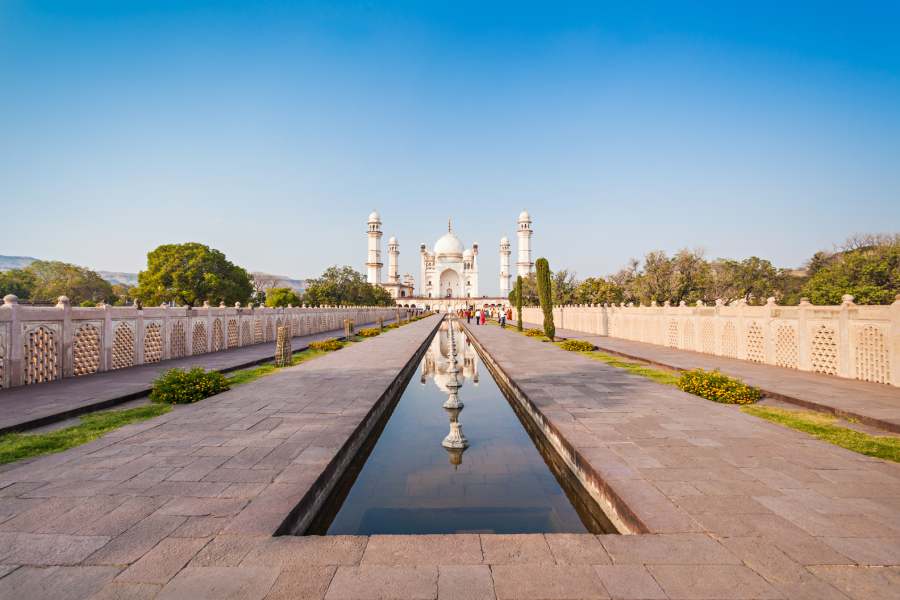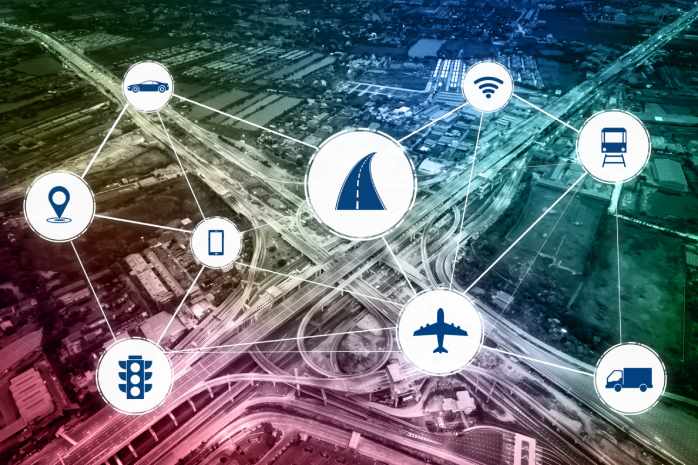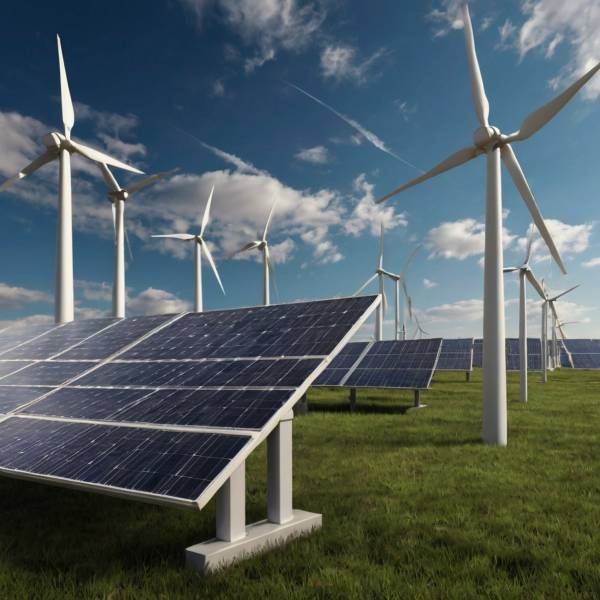- Home
- MIM Membership
- Councils
- Governing Councils
- Semiconductors in Maharashtra Council
- DeepTech in Maharashtra Council
- Artificial Intelligence and Data Centre Council
- New and Renewable Energy Council
- Maharashtra Infrastructure Council
- Maharashtra Fisheries and Aquaculture Council
- Maharashtra Port and Maritime Transport Council
- Robotics and Drones in Maharashtra Council
- HeathTech in Maharashtra Council
- EdTech in Maharashtra Council
- Agriculture and Food Security Council
- FinTech in Maharashtra Council
- MaterialTech in Maharashtra Council
- MedTech in Maharashtra Council
- Governance and Transparency Council
- Maharashtra Cultural and Tourism Council
- Youth Empowerment and Entrepreneurship Council
- Gender Equality and Women’s Empowerment Council
- Maharashtra Climate Change and Resilience Council
- Maharashtra Trade and Investment Council
- Global Capability Centre Council
- Entertainment and Events Council
- Global Trade Council Partnerships
- Australia China Chamber of Trade, Commerce and Industry
- Australia India Chamber of Trade, Commerce and Industry
- Australia India Seafood Industry Council (AISIC)
- Australia India Free Trade and Seafood Industry Advisory Group (AIFTSIAG)
- Australia Qatar Chamber of Trade, Commerce and Industry
- Australia Saudi Arabia Chamber of Trade, Commerce and Industry
- Australia Turkiye Chamber of Trade, Commerce and Industry
- Australia UAE Chamber of Trade, Commerce and Industry
- Australia USA Chamber of Trade, Commerce and Industry
- Australia Singapore Chamber of Trade, Commerce, and Industry
- Maritime Councils
- Maharashtra Port and Maritime Transport Council
- Global South Chamber of Shipping
- International Chamber of Shipping
- The World Shipping Council
- International Maritime Organization
- Strait of Hormuz Cooperation and Arbitration Council
- Strait of Malacca Cooperation and Arbitration Council
- Bab-el-Mandeb Strait Cooperation and Arbitration Council
- Suez Canal Cooperation and Arbitration Council
- Bosporus Strait Cooperation and Arbitration Council
- Strait of Gibraltar Cooperation and Arbitration Council
- Panama Canal Cooperation and Arbitration Council
- Cook Strait Cooperation and Arbitration Council
- Governing Councils
- Policies
- Make in Maharashtra Semiconductor Fabless Policy 2024-2030
- Make in Maharashtra Data Centre Policy 2024-2030
- Make in Maharashtra Information Technology Policy 2024-2030
- Make in Maharashtra Multimodal Logistics Policy 2024-2030
- Make in Maharashtra BPO and Global Capability Centre (GCC) Policy 2024-2030
- Make in Maharashtra New and Renewable Energy Policy 2024-2030
- Make in Maharashtra Biotechnology Policy 2024-2030
- Make in Maharashtra Pharmaceuticals Policy 2024-2030
- Make in Maharashtra DeepTech, AI, and Data Centre Policy 2024-2030
- Make in Maharashtra Electronics Policy 2024-2030
- Make in Maharashtra MedTech Policy 2024-2030
- Make in Maharashtra Film and Media Policy 2024-2030
- Make in Maharashtra FinTech Policy 2024-2030
- Make in Maharashtra EdTech Policy 2024-2030
- Make in Maharashtra Events and Tourism Policy 2024-2030
- Make in Maharashtra Apparel and Technical Textiles Policy 2024-2030
- Make in Maharashtra Aerospace and Defence Manufacturing Policy 2024-2030
- Make in Maharashtra Fisheries Policy 2024-2030
- Make in Maharashtra Special Economic Zone (SEZ) Policy 2024-2030
- Maharashtra Startup Policy 2024-2030
- Maharashtra Micro, Small, and Medium Enterprises (MSME) Manufacturing Policy 2024-2030
- Missions and Delegations
- Advocacy
- Make in Maharashtra 2025
- Resources & News
- Business Resources
- Industry Jobs Board
- A Prosperous Future: Make in Maharashtra Vision 2030
- Global South and Australia Building Economic Alliances
- Mumbai – An Investors Hub for India
- Make in Maharashtra Economic Forum In The News
- Thought Leaders Podcasts and Articles
- Industry Reports
- Knowledge Co-Creation Programs
- Contact Us
- Home
- MIM Membership
- Councils
- Governing Councils
- Semiconductors in Maharashtra Council
- DeepTech in Maharashtra Council
- Artificial Intelligence and Data Centre Council
- New and Renewable Energy Council
- Maharashtra Infrastructure Council
- Maharashtra Fisheries and Aquaculture Council
- Maharashtra Port and Maritime Transport Council
- Robotics and Drones in Maharashtra Council
- HeathTech in Maharashtra Council
- EdTech in Maharashtra Council
- Agriculture and Food Security Council
- FinTech in Maharashtra Council
- MaterialTech in Maharashtra Council
- MedTech in Maharashtra Council
- Governance and Transparency Council
- Maharashtra Cultural and Tourism Council
- Youth Empowerment and Entrepreneurship Council
- Gender Equality and Women’s Empowerment Council
- Maharashtra Climate Change and Resilience Council
- Maharashtra Trade and Investment Council
- Global Capability Centre Council
- Entertainment and Events Council
- Global Trade Council Partnerships
- Australia China Chamber of Trade, Commerce and Industry
- Australia India Chamber of Trade, Commerce and Industry
- Australia India Seafood Industry Council (AISIC)
- Australia India Free Trade and Seafood Industry Advisory Group (AIFTSIAG)
- Australia Qatar Chamber of Trade, Commerce and Industry
- Australia Saudi Arabia Chamber of Trade, Commerce and Industry
- Australia Turkiye Chamber of Trade, Commerce and Industry
- Australia UAE Chamber of Trade, Commerce and Industry
- Australia USA Chamber of Trade, Commerce and Industry
- Australia Singapore Chamber of Trade, Commerce, and Industry
- Maritime Councils
- Maharashtra Port and Maritime Transport Council
- Global South Chamber of Shipping
- International Chamber of Shipping
- The World Shipping Council
- International Maritime Organization
- Strait of Hormuz Cooperation and Arbitration Council
- Strait of Malacca Cooperation and Arbitration Council
- Bab-el-Mandeb Strait Cooperation and Arbitration Council
- Suez Canal Cooperation and Arbitration Council
- Bosporus Strait Cooperation and Arbitration Council
- Strait of Gibraltar Cooperation and Arbitration Council
- Panama Canal Cooperation and Arbitration Council
- Cook Strait Cooperation and Arbitration Council
- Governing Councils
- Policies
- Make in Maharashtra Semiconductor Fabless Policy 2024-2030
- Make in Maharashtra Data Centre Policy 2024-2030
- Make in Maharashtra Information Technology Policy 2024-2030
- Make in Maharashtra Multimodal Logistics Policy 2024-2030
- Make in Maharashtra BPO and Global Capability Centre (GCC) Policy 2024-2030
- Make in Maharashtra New and Renewable Energy Policy 2024-2030
- Make in Maharashtra Biotechnology Policy 2024-2030
- Make in Maharashtra Pharmaceuticals Policy 2024-2030
- Make in Maharashtra DeepTech, AI, and Data Centre Policy 2024-2030
- Make in Maharashtra Electronics Policy 2024-2030
- Make in Maharashtra MedTech Policy 2024-2030
- Make in Maharashtra Film and Media Policy 2024-2030
- Make in Maharashtra FinTech Policy 2024-2030
- Make in Maharashtra EdTech Policy 2024-2030
- Make in Maharashtra Events and Tourism Policy 2024-2030
- Make in Maharashtra Apparel and Technical Textiles Policy 2024-2030
- Make in Maharashtra Aerospace and Defence Manufacturing Policy 2024-2030
- Make in Maharashtra Fisheries Policy 2024-2030
- Make in Maharashtra Special Economic Zone (SEZ) Policy 2024-2030
- Maharashtra Startup Policy 2024-2030
- Maharashtra Micro, Small, and Medium Enterprises (MSME) Manufacturing Policy 2024-2030
- Missions and Delegations
- Advocacy
- Make in Maharashtra 2025
- Resources & News
- Business Resources
- Industry Jobs Board
- A Prosperous Future: Make in Maharashtra Vision 2030
- Global South and Australia Building Economic Alliances
- Mumbai – An Investors Hub for India
- Make in Maharashtra Economic Forum In The News
- Thought Leaders Podcasts and Articles
- Industry Reports
- Knowledge Co-Creation Programs
- Contact Us
- Home
- MIM Membership
- Councils
- Governing Councils
- Semiconductors in Maharashtra Council
- DeepTech in Maharashtra Council
- Artificial Intelligence and Data Centre Council
- New and Renewable Energy Council
- Maharashtra Infrastructure Council
- Maharashtra Fisheries and Aquaculture Council
- Maharashtra Port and Maritime Transport Council
- Robotics and Drones in Maharashtra Council
- HeathTech in Maharashtra Council
- EdTech in Maharashtra Council
- Agriculture and Food Security Council
- FinTech in Maharashtra Council
- MaterialTech in Maharashtra Council
- MedTech in Maharashtra Council
- Governance and Transparency Council
- Maharashtra Cultural and Tourism Council
- Youth Empowerment and Entrepreneurship Council
- Gender Equality and Women’s Empowerment Council
- Maharashtra Climate Change and Resilience Council
- Maharashtra Trade and Investment Council
- Global Capability Centre Council
- Entertainment and Events Council
- Global Trade Council Partnerships
- Australia China Chamber of Trade, Commerce and Industry
- Australia India Chamber of Trade, Commerce and Industry
- Australia India Seafood Industry Council (AISIC)
- Australia India Free Trade and Seafood Industry Advisory Group (AIFTSIAG)
- Australia Qatar Chamber of Trade, Commerce and Industry
- Australia Saudi Arabia Chamber of Trade, Commerce and Industry
- Australia Turkiye Chamber of Trade, Commerce and Industry
- Australia UAE Chamber of Trade, Commerce and Industry
- Australia USA Chamber of Trade, Commerce and Industry
- Australia Singapore Chamber of Trade, Commerce, and Industry
- Maritime Councils
- Maharashtra Port and Maritime Transport Council
- Global South Chamber of Shipping
- International Chamber of Shipping
- The World Shipping Council
- International Maritime Organization
- Strait of Hormuz Cooperation and Arbitration Council
- Strait of Malacca Cooperation and Arbitration Council
- Bab-el-Mandeb Strait Cooperation and Arbitration Council
- Suez Canal Cooperation and Arbitration Council
- Bosporus Strait Cooperation and Arbitration Council
- Strait of Gibraltar Cooperation and Arbitration Council
- Panama Canal Cooperation and Arbitration Council
- Cook Strait Cooperation and Arbitration Council
- Governing Councils
- Policies
- Make in Maharashtra Semiconductor Fabless Policy 2024-2030
- Make in Maharashtra Data Centre Policy 2024-2030
- Make in Maharashtra Information Technology Policy 2024-2030
- Make in Maharashtra Multimodal Logistics Policy 2024-2030
- Make in Maharashtra BPO and Global Capability Centre (GCC) Policy 2024-2030
- Make in Maharashtra New and Renewable Energy Policy 2024-2030
- Make in Maharashtra Biotechnology Policy 2024-2030
- Make in Maharashtra Pharmaceuticals Policy 2024-2030
- Make in Maharashtra DeepTech, AI, and Data Centre Policy 2024-2030
- Make in Maharashtra Electronics Policy 2024-2030
- Make in Maharashtra MedTech Policy 2024-2030
- Make in Maharashtra Film and Media Policy 2024-2030
- Make in Maharashtra FinTech Policy 2024-2030
- Make in Maharashtra EdTech Policy 2024-2030
- Make in Maharashtra Events and Tourism Policy 2024-2030
- Make in Maharashtra Apparel and Technical Textiles Policy 2024-2030
- Make in Maharashtra Aerospace and Defence Manufacturing Policy 2024-2030
- Make in Maharashtra Fisheries Policy 2024-2030
- Make in Maharashtra Special Economic Zone (SEZ) Policy 2024-2030
- Maharashtra Startup Policy 2024-2030
- Maharashtra Micro, Small, and Medium Enterprises (MSME) Manufacturing Policy 2024-2030
- Missions and Delegations
- Advocacy
- Make in Maharashtra 2025
- Resources & News
- Business Resources
- Industry Jobs Board
- A Prosperous Future: Make in Maharashtra Vision 2030
- Global South and Australia Building Economic Alliances
- Mumbai – An Investors Hub for India
- Make in Maharashtra Economic Forum In The News
- Thought Leaders Podcasts and Articles
- Industry Reports
- Knowledge Co-Creation Programs
- Contact Us
- Home
- MIM Membership
- Councils
- Governing Councils
- Semiconductors in Maharashtra Council
- DeepTech in Maharashtra Council
- Artificial Intelligence and Data Centre Council
- New and Renewable Energy Council
- Maharashtra Infrastructure Council
- Maharashtra Fisheries and Aquaculture Council
- Maharashtra Port and Maritime Transport Council
- Robotics and Drones in Maharashtra Council
- HeathTech in Maharashtra Council
- EdTech in Maharashtra Council
- Agriculture and Food Security Council
- FinTech in Maharashtra Council
- MaterialTech in Maharashtra Council
- MedTech in Maharashtra Council
- Governance and Transparency Council
- Maharashtra Cultural and Tourism Council
- Youth Empowerment and Entrepreneurship Council
- Gender Equality and Women’s Empowerment Council
- Maharashtra Climate Change and Resilience Council
- Maharashtra Trade and Investment Council
- Global Capability Centre Council
- Entertainment and Events Council
- Global Trade Council Partnerships
- Australia China Chamber of Trade, Commerce and Industry
- Australia India Chamber of Trade, Commerce and Industry
- Australia India Seafood Industry Council (AISIC)
- Australia India Free Trade and Seafood Industry Advisory Group (AIFTSIAG)
- Australia Qatar Chamber of Trade, Commerce and Industry
- Australia Saudi Arabia Chamber of Trade, Commerce and Industry
- Australia Turkiye Chamber of Trade, Commerce and Industry
- Australia UAE Chamber of Trade, Commerce and Industry
- Australia USA Chamber of Trade, Commerce and Industry
- Australia Singapore Chamber of Trade, Commerce, and Industry
- Maritime Councils
- Maharashtra Port and Maritime Transport Council
- Global South Chamber of Shipping
- International Chamber of Shipping
- The World Shipping Council
- International Maritime Organization
- Strait of Hormuz Cooperation and Arbitration Council
- Strait of Malacca Cooperation and Arbitration Council
- Bab-el-Mandeb Strait Cooperation and Arbitration Council
- Suez Canal Cooperation and Arbitration Council
- Bosporus Strait Cooperation and Arbitration Council
- Strait of Gibraltar Cooperation and Arbitration Council
- Panama Canal Cooperation and Arbitration Council
- Cook Strait Cooperation and Arbitration Council
- Governing Councils
- Policies
- Make in Maharashtra Semiconductor Fabless Policy 2024-2030
- Make in Maharashtra Data Centre Policy 2024-2030
- Make in Maharashtra Information Technology Policy 2024-2030
- Make in Maharashtra Multimodal Logistics Policy 2024-2030
- Make in Maharashtra BPO and Global Capability Centre (GCC) Policy 2024-2030
- Make in Maharashtra New and Renewable Energy Policy 2024-2030
- Make in Maharashtra Biotechnology Policy 2024-2030
- Make in Maharashtra Pharmaceuticals Policy 2024-2030
- Make in Maharashtra DeepTech, AI, and Data Centre Policy 2024-2030
- Make in Maharashtra Electronics Policy 2024-2030
- Make in Maharashtra MedTech Policy 2024-2030
- Make in Maharashtra Film and Media Policy 2024-2030
- Make in Maharashtra FinTech Policy 2024-2030
- Make in Maharashtra EdTech Policy 2024-2030
- Make in Maharashtra Events and Tourism Policy 2024-2030
- Make in Maharashtra Apparel and Technical Textiles Policy 2024-2030
- Make in Maharashtra Aerospace and Defence Manufacturing Policy 2024-2030
- Make in Maharashtra Fisheries Policy 2024-2030
- Make in Maharashtra Special Economic Zone (SEZ) Policy 2024-2030
- Maharashtra Startup Policy 2024-2030
- Maharashtra Micro, Small, and Medium Enterprises (MSME) Manufacturing Policy 2024-2030
- Missions and Delegations
- Advocacy
- Make in Maharashtra 2025
- Resources & News
- Business Resources
- Industry Jobs Board
- A Prosperous Future: Make in Maharashtra Vision 2030
- Global South and Australia Building Economic Alliances
- Mumbai – An Investors Hub for India
- Make in Maharashtra Economic Forum In The News
- Thought Leaders Podcasts and Articles
- Industry Reports
- Knowledge Co-Creation Programs
- Contact Us
Make in Maharashtra Special Economic Zone (SEZ) Policy 2024-2030
Creating a Global Hub for Investment and Innovation
The Maharashtra Special Economic Zone (SEZ) Policy 2024 aims to establish Maharashtra as a global hub for investment, innovation, and export-driven industrialization by creating world-class Special Economic Zones (SEZs). This policy focuses on fostering a globally competitive business environment that attracts foreign direct investment (FDI), promotes exports, and stimulates the efficient use of local resources.
With a focus on key sectors like IT/ITES, biotechnology, electronics, automobiles, food processing, pharmaceuticals, and tourism, the SEZ Policy offers unparalleled infrastructure, ease of doing business, and incentives to attract both domestic and international investors.


Vision for 2030: Maharashtra as a Leading SEZ Destination
By 2030, Maharashtra will be recognized globally for its leadership in SEZ development and will host a range of SEZs that cater to diverse industries. The state aims to become:
- India’s top SEZ destination, contributing significantly to the nation’s exports and industrial growth.
- A globally recognized hub for high-tech manufacturing, biotechnology, pharmaceuticals, and IT/ITES sectors.
- A destination of choice for global investors, providing seamless infrastructure, world-class facilities, and attractive incentives.
Thrust Sectors for SEZ Development
Maharashtra will focus on the development of SEZs in the following priority sectors:
Information Technology (IT) & IT-Enabled Services (ITES)
Biotechnology
Electronic System Design & Manufacturing (ESDM)
Automobile and Auto-Component Manufacturing
Heavy and Light Engineering Goods
Textiles, Handlooms, Handicrafts, and Leather
Agro and Food Processing Industries (including Marine Products)
Shipbuilding and Repairing
Gems & Jewellery
Pharmaceuticals
Tourism and Hospitality
Petrochemical Industries
Renewable Energy Technologies
Strategic SEZ Corridors, Parks, and Zones
To accelerate industrial growth and attract investment, Maharashtra will establish SEZs in key locations, leveraging geographic advantages, infrastructure development, and industrial corridors. Key SEZ initiatives include:
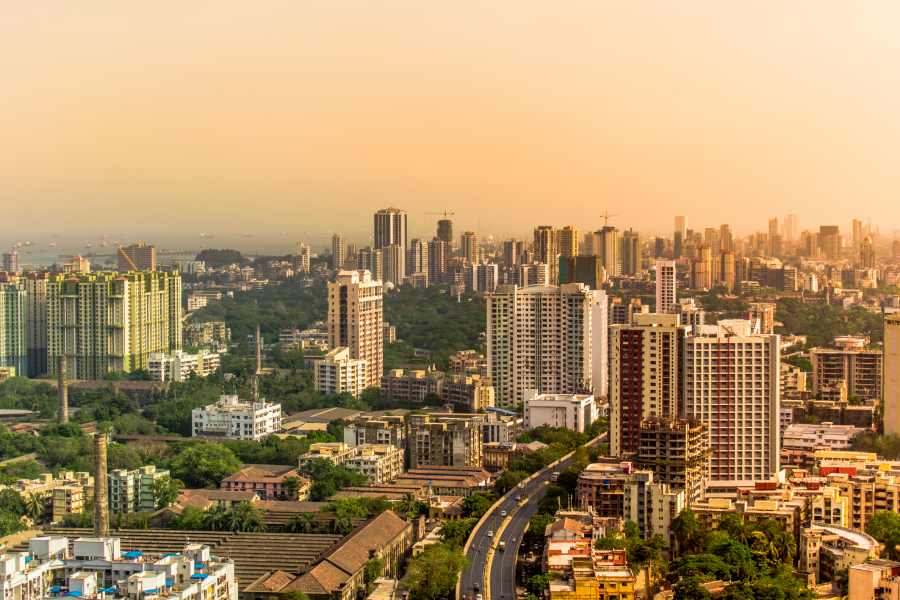
Mumbai-Thane-Navi Mumbai SEZ Corridor
- Sector Focus: IT/ITES, Pharmaceuticals, Biotechnology, Financial Services.
- Infrastructure: High-tech business parks, smart office spaces, dedicated logistics hubs.
- Benefit: Leverages proximity to Mumbai, the financial capital, with excellent connectivity via ports, airports, and rail.
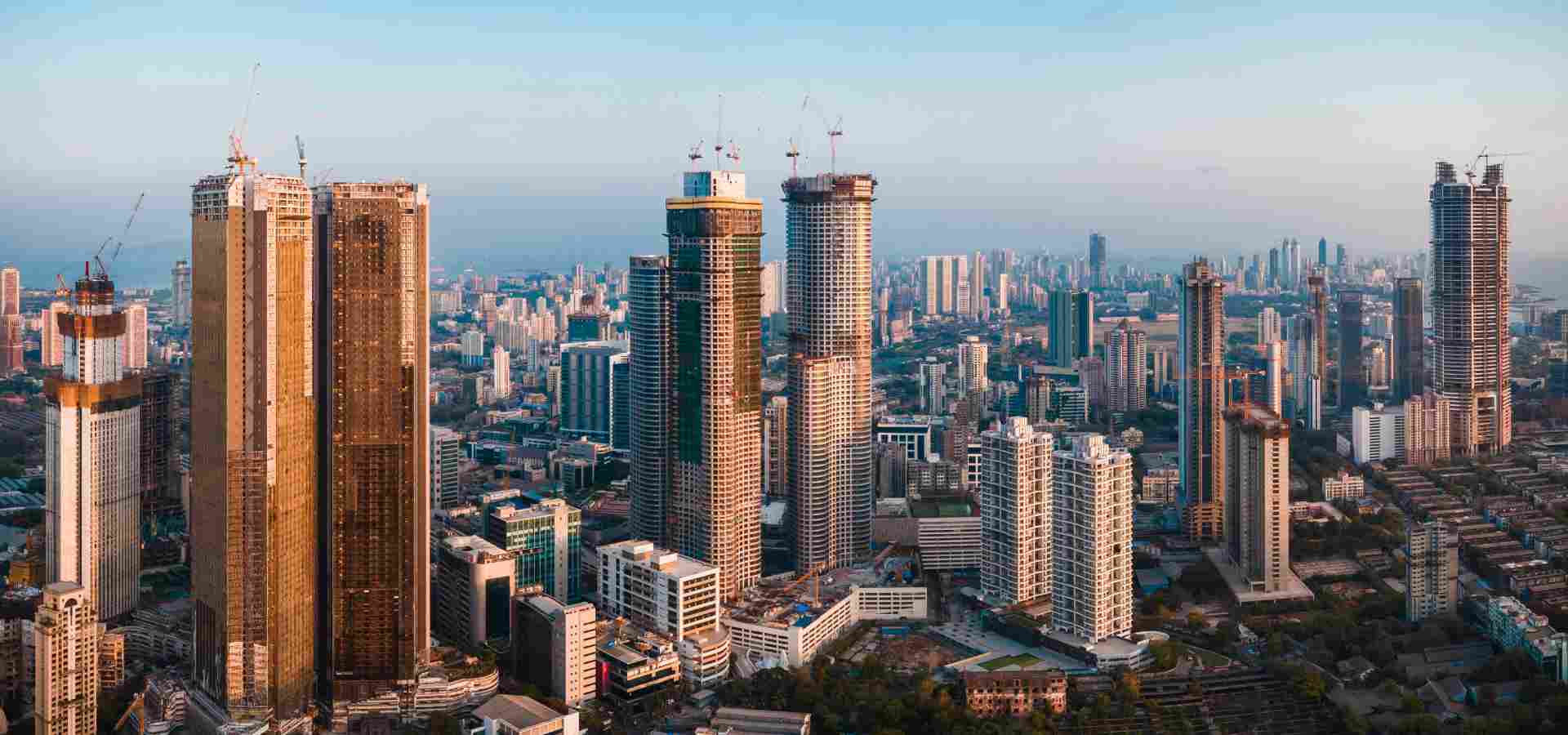
Pune-Nashik SEZ Corridor
- Sector Focus: Automobile & Auto Components, ESDM, Heavy Engineering, R&D.
- Infrastructure:R&D parks, industrial zones, and world-class engineering facilities.
- Benefit: Connects with Pune’s automotive hub and Nashik’s industrial base, facilitating integrated manufacturing and research.
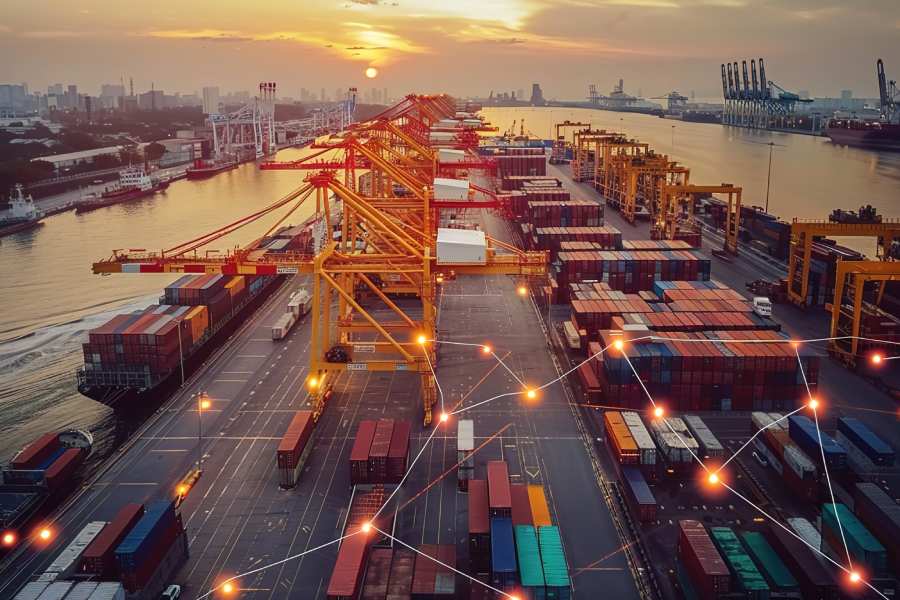
Nagpur Logistics & Aerospace SEZ
- Sector Focus: Logistics, Aerospace, Heavy Engineering, Petrochemicals.
- Infrastructure:Logistics parks, aerospace manufacturing units, air cargo facilities.
- Benefit: Proximity to MIHAN (Multi-modal International Cargo Hub and Airport at Nagpur) for logistics and international trade.

Textile and Apparel SEZs in Solapur and Kolhapur
- Sector Focus: Textiles, Apparel, Handlooms, Leather Products.
- Infrastructure: Textile parks, garment manufacturing units, and export zones.
- Benefit: Taps into the rich heritage of textile manufacturing in these regions and provides international market access for handicrafts.
Ease of Doing Business: Simplified Procedures
Maharashtra will implement a series of measures to ensure that businesses operating in SEZs face minimal bureaucratic hurdles:
- Single-Window Clearance: A three-tier single-window clearance system will facilitate quick approvals for all licenses, permits, and clearances related to SEZ activities.
- Nodal Agencies: The Industries Department will be the nodal agency for SEZ projects, while specific line departments will assist in sector-specific proposals.
- Public Utility Services: SEZs will be declared as Public Utility Services, offering preferential treatment and security to companies operating within SEZs.
- Development Commissioner (DC): A Development Commissioner will be appointed for each SEZ to oversee operations and resolve issues related to compliance and infrastructure.

Incentives for SEZ Developers and Units in Maharashtra
To make Maharashtra’s SEZs attractive for developers, co-developers, and units, the state offers a comprehensive range of financial and non-financial incentives to ensure ease of doing business and enhanced competitiveness. Below are additional incentives aimed at fostering industrial growth and attracting global investors:
| Incentive Name | Details | Benefit |
| Stamp Duty and Registration Fee Exemption | 100% exemption on stamp duty and registration fees on land transfers, lease agreements, and loans executed by SEZ developers and units. | Reduces upfront costs, making land acquisition and development financially viable. |
| VAT & Entry Tax Exemption | 100% VAT exemption on sales transactions within SEZs. 100% Entry Tax exemption on imported goods for production or services related to exports. | Lowers operating costs and makes SEZ products more competitive globally. |
| Electricity Duty Exemption | 100% exemption from electricity duty for power consumption within SEZs. | Encourages cost-efficient operations by reducing utility expenses. |
| SGST Reimbursement | 100% reimbursement of State Goods and Services Tax (SGST) for goods and services exported from SEZs. | Ensures tax benefits and cash flow relief for export-oriented units. |
| Zero-Rated Export Duties | Zero-rated export duties for goods exported from SEZs under EXIM policies. | Encourages international trade by eliminating export taxes. |
| Capital Investment Subsidies | 50% subsidy for infrastructure development, including R&D centers, logistics hubs, and technology zones. | Encourages investment in high-tech industries and infrastructure development. |
| Interest Subsidy on Loans | 5% interest subsidy on loans taken by SEZ developers and units for setting up production and R&D facilities. | Lowers borrowing costs and stimulates capital investment for new SEZ projects. |
| Land Lease at Concessional Rates | Government land for SEZ developers will be provided at concessional lease rates for up to 99 years. | Encourages large-scale development by lowering land acquisition costs. |
| Environmental Infrastructure Grants | Up to ₹10 crores in grants for setting up green infrastructure like solar power, water recycling, and energy-efficient buildings in SEZs. | Promotes environmentally friendly practices and attracts sustainability-focused companies. |
| 100% Income Tax Exemption | 100% exemption from income tax on profits for the first 5 years, followed by 50% exemption for the next 5 years. | Offers significant financial savings, encouraging businesses to invest and grow within SEZs. |
| Freight and Transport Subsidies | 50% subsidy on freight charges for transporting raw materials and finished goods from SEZs to ports or other markets. | Lowers logistics costs and enhances export competitiveness. |
| Innovation & Technology Upgradation Grants | 50% subsidy on the adoption of advanced manufacturing technologies like AI, automation, and IoT in SEZ units. | Encourages the use of cutting-edge technology and innovation in SEZ industries. |
| Training and Skill Development Support | 50% subsidy on the cost of setting up training centers and skill development programs for employees of SEZ units. | Ensures a steady supply of skilled workers, making the SEZs more attractive to high-tech industries. |
| Export-Linked Financial Incentives | Performance-based financial incentives linked to export volumes, with direct grants for exceeding set export targets. | Motivates SEZ units to increase exports by providing additional financial support for successful exporters. |
| Patent Filing Support | 75% reimbursement of costs associated with patent filings for innovations developed within SEZs. | Encourages R&D and intellectual property protection, boosting innovation and competitiveness. |
| IT Infrastructure Support | 50% subsidy on setting up IT infrastructure, including high-speed internet and cloud services within SEZs. | Supports the development of advanced IT infrastructure, crucial for attracting global IT and service industries. |
| Export Insurance Premium Reimbursement | 50% reimbursement of export insurance premiums paid by SEZ units. | Reduces the risk for exporters, encouraging more international trade. |
| Special Zoning for MSMEs | Dedicated MSME zones within SEZs with reduced lease rates, simplified registration, and tailored financial incentives. | Encourages the participation of small and medium enterprises (SMEs) in SEZ activities. |
| Foreign Investor Incentives | Special visa assistance, fast-track approvals, and customized tax benefits for foreign investors setting up units in Maharashtra SEZs. | Attracts global investors by offering exclusive benefits and streamlined processes. |
| Utility Subsidy for Manufacturing Units | 30% subsidy on the installation and use of water treatment facilities, waste management systems, and energy-efficient equipment. | Encourages manufacturers to adopt sustainable practices and reduce environmental impact. |

Conclusion: Maharashtra Leading the Way in SEZ Development
Maharashtra’s SEZ Policy offers an extensive and competitive array of incentives designed to make the state the premier destination for global investors, industrial development, and export-driven growth. By reducing costs, streamlining operations, and offering world-class infrastructure, Maharashtra aims to transform its SEZs into global centers of excellence, attracting top industries and leading companies from across the world.
Maharashtra invites developers, entrepreneurs, and international businesses to take full advantage of these incentives and become part of the state’s growth story as it leads the way in SEZ development and economic transformation by 2030.
Infrastructure & Utilities for SEZs in Maharashtra: A Comprehensive Approach
The Maharashtra Special Economic Zone (SEZ) Policy 2024 is designed to attract top-tier global investors and skilled professionals, ensuring that SEZs are not just industrial hubs but also vibrant communities. The policy aims to create SEZs that offer world-class infrastructure, utilities, and lifestyle amenities that appeal to both domestic and international talent, including expatriates from Japan, China, the Middle East, Europe, and the Americas.
Maharashtra will ensure that SEZs provide everything from luxury residential complexes and community parks to restaurants and food zones, creating a holistic environment for both work and life.
Power Supply and Renewable Energy Integration
- Uninterrupted Power Supply: SEZs will be equipped with reliable and uninterrupted power supply through state-of-the-art infrastructure, ensuring round-the-clock operations for businesses.
- Captive Power Plants (CPPs): SEZ units will have the option to set up captive power plants to ensure self-sufficiency, and these CPPs can connect to the state grid.
- Renewable Energy Integration: Special emphasis will be placed on renewable energy options, with subsidies for solar, wind, and bioenergy installations, offering tax rebates for SEZs that adopt green energy solutions.
- Smart Energy Management: Introduction of smart grids and energy-efficient systems to manage power consumption effectively, reducing operational costs for businesses.

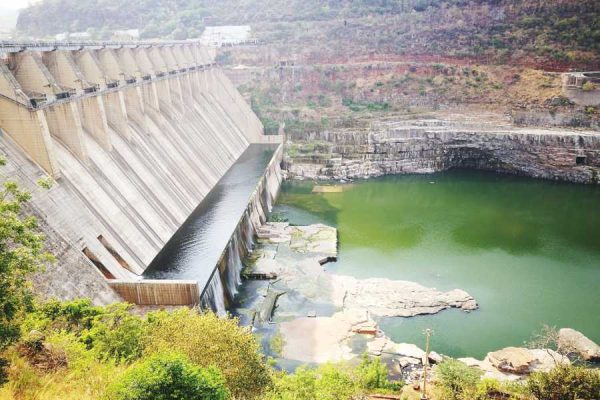
Water Supply and Wastewater Management
- Water Supply: SEZs will receive priority allocation of adequate water resources, supported by fast-track approvals for water usage from nearby sources.
- Water Conservation and Recycling: SEZs will adopt rainwater harvesting, wastewater recycling, and desalination plants (in coastal SEZs) to ensure sustainability.
- Effluent Treatment Plants (ETPs): SEZs will be equipped with centralized effluent treatment plants, ensuring compliance with environmental regulations and minimizing industrial pollution.
Land and Infrastructure Development
- Concessional Land Allotment: Government land for SEZ developers will be provided at concessional rates or under long-term lease agreements, particularly for projects generating high employment.
- Sector-Specific Clusters: SEZs will feature industrial parks and sector-specific clusters, such as textile parks, automotive zones, biotechnology hubs, and electronics manufacturing zones.
- Smart SEZs: The state will implement smart city infrastructure within SEZs, including IoT-based real-time monitoring systems, smart transportation, and energy management tools.
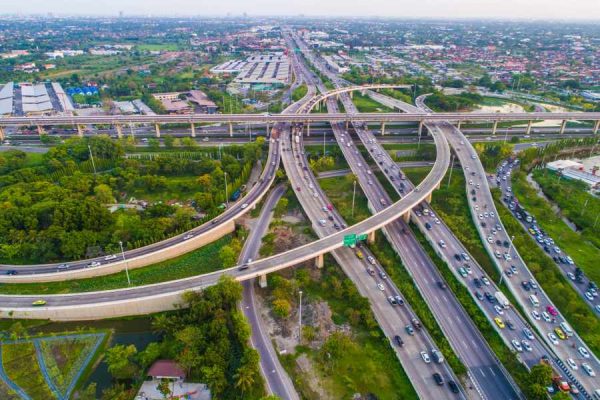
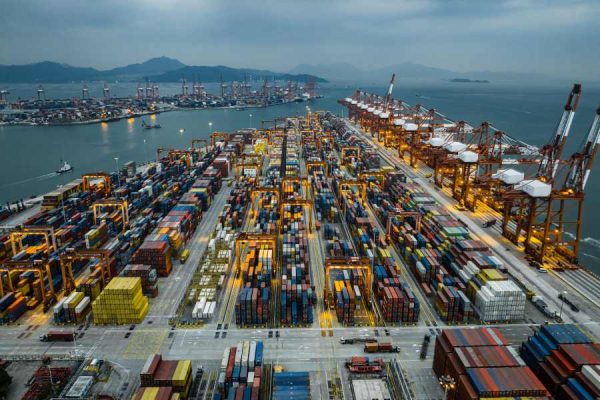
Logistics, Ports, and Inland Container Depots (ICDs)
- Multi-Modal Connectivity: SEZs will benefit from multi-modal transport networks, with seamless road, rail, air, and sea connectivity to facilitate easy access to global markets.
- Dedicated Freight Corridors: Maharashtra’s SEZs will connect to dedicated freight corridors such as the Delhi-Mumbai Industrial Corridor (DMIC), providing smooth movement of goods to ports and markets.
- Cold Storage and Warehousing: Modern cold storage units and warehousing facilities will be developed in agro-based SEZs, ensuring proper handling and storage of perishable goods for export.
- Custom Bonded Warehouses: SEZs will include custom bonded warehouses for duty-free storage of goods until they are re-exported, easing cash flow for businesses.
Digital Infrastructure and IT Networks
- High-Speed Broadband and 5G: SEZs will offer high-speed internet and 5G networks, ensuring seamless connectivity for industries like IT/ITES, R&D, and advanced manufacturing.
- Data Centers and Cloud Services: SEZs will support the establishment of data centers and provide access to cloud services, making them ideal for digital businesses and global tech firms.
- Smart Surveillance Systems: SEZs will feature smart surveillance systems with AI-powered security, real-time monitoring, and integrated control centers for ensuring safety and security.
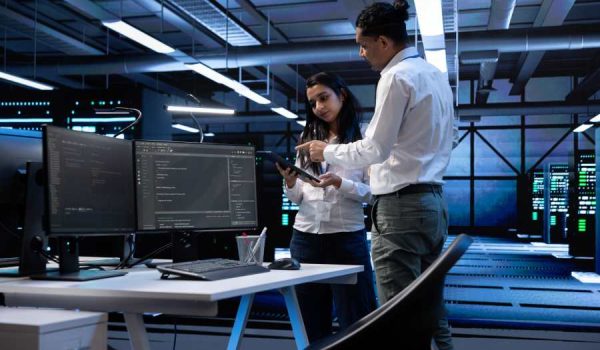

Social Infrastructure: Community Parks, Restaurants, and Food Zones
- Community Parks and Green Spaces: To create a vibrant, livable environment, SEZs will feature community parks, green spaces, and landscaped recreational areas where employees and residents can relax and unwind. These parks will include walking paths, outdoor fitness equipment, and playgrounds to promote well-being.
- Restaurants and Food Zones: SEZs will offer dedicated food zones featuring a diverse range of restaurants, cafes, and food courts. These establishments will cater to both local tastes and international cuisines, ensuring that expatriates and senior professionals from countries like Japan, China, the Middle East, and America have access to familiar dining options.
- International Cuisine Hubs: Special food hubs offering Japanese, Chinese, Middle Eastern, American, and European cuisines will be developed, enhancing the living experience for expatriates working in SEZs.
Luxury Residential Complexes for Expatriates and Senior Skilled Workers
- Luxury Residential Communities: SEZs will include luxury residential complexes designed for expatriates and senior professionals from countries such as Japan, China, the Middle East, Europe, and America. These complexes will offer high-end facilities such as private clubs, swimming pools, gyms, and 24/7 concierge services.
- International-Style Living: The residential complexes will be built to international standards, providing expatriates and their families with a comfortable and luxurious living environment. Housing will feature modern amenities, multi-bedroom apartments, and serviced apartments for long-term and short-term stays.
- Expatriate-Friendly Services: These residential zones will offer specialized services for expatriates, including language assistance, international schooling, medical facilities, and cultural events that cater to the needs of foreign workers.
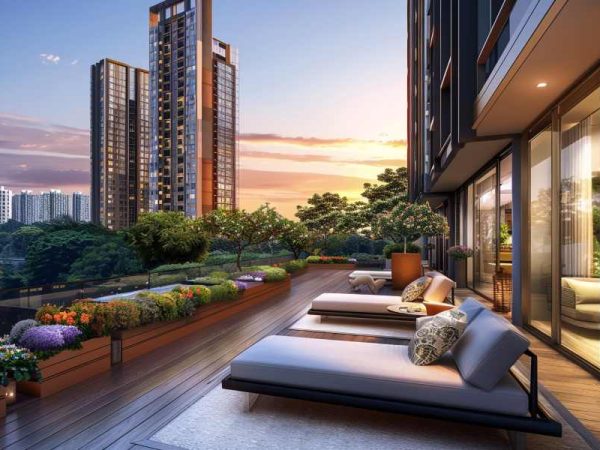

Healthcare, Education, and Public Transport
- Healthcare Facilities: SEZs will feature world-class hospitals and medical centers offering international healthcare standards. Clinics and health and wellness centers will provide healthcare services to both expatriates and local workers.
- International Schools: To support the families of expatriates, international schools offering IB (International Baccalaureate) and global curricula will be established in SEZ townships. These schools will cater to children from diverse backgrounds, ensuring high-quality education.
- Public Transport: SEZs will have well-developed public transport systems, including electric buses, metro rail, and shuttle services for employees and residents, offering sustainable and efficient commuting options within and outside SEZ zones.
Environmental Sustainability and Green Infrastructure
- Eco-Friendly Building Standards: SEZ developers will be encouraged to adopt LEED and Green Building standards for the construction of office spaces, residential complexes, and manufacturing units, ensuring a low carbon footprint and energy efficiency.
- Carbon Offset Programs: SEZ units adopting low-carbon technologies and renewable energy will be provided with tax benefits and subsidies, encouraging them to participate in Maharashtra’s carbon offset program.
- Waste Management and Recycling: SEZs will implement waste management systems and recycling plants, with a focus on reducing industrial waste and promoting sustainable production practices.

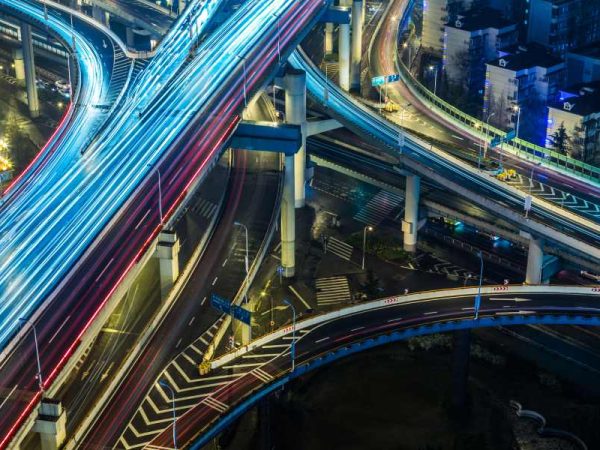
Conclusion: World-Class Infrastructure for Maharashtra’s SEZs
Maharashtra’s SEZs are designed not only to foster industrial growth but to create vibrant, livable communities that attract global talent and investment. By offering world-class infrastructure, green spaces, luxury living, and a seamless work-life balance, these SEZs will become the preferred destination for businesses and skilled professionals from around the world.
Maharashtra invites global investors, business leaders, and expatriate professionals to be part of this transformative journey, creating a globally competitive and highly attractive ecosystem that will shape the future of industrial development and urban living in India.
Social Infrastructure for International Skilled Workers and Their Families: Community Parks, Restaurants, and Food Zones
The Maharashtra Special Economic Zone (SEZ) Policy 2024 is committed to providing a holistic living environment that caters to both international skilled workers and their families. By ensuring high-quality educational facilities, recreational spaces, and cultural integration, the policy aims to attract expatriates from countries such as Japan, China, Vietnam, Malaysia, the Middle East, and America. Special attention is given to ensuring the comfort and well-being of the children of expatriates, fostering a nurturing environment that supports their education, growth, and cultural adaptability.
International Community Parks and Green Spaces for Families
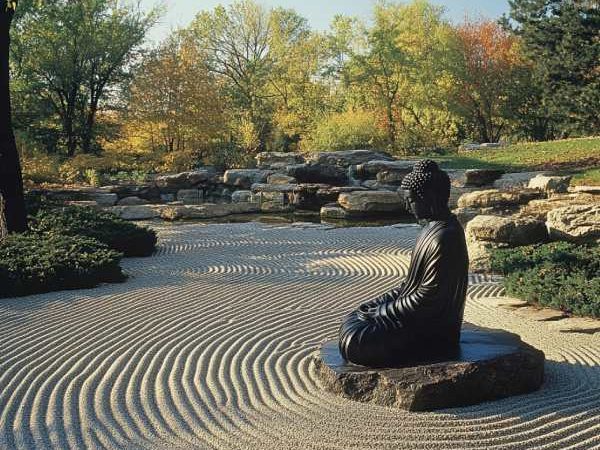
SEZs will be designed with family-friendly community parks and green spaces that offer recreational activities for children from diverse cultural backgrounds.
Features for Children:
- Themed Play Areas: Parks will feature themed playgrounds representing cultural elements from Japan, China, Vietnam, Malaysia, and the Middle East. For instance, Japanese-style parks may include zen-inspired play areas with natural elements, while Chinese gardens will feature traditional pagodas and bamboo landscapes.
- Interactive Learning Zones: Educational play areas will be integrated into the parks, including STEM learning zones where children can engage with science-based activities like robotics, sustainability projects, and interactive installations to inspire curiosity and creativity.
- Cultural Festivals for Children: Community parks will host cultural festivals from the expatriates’ home countries, such as Tanabata (Japan), Mid-Autumn Festival (China), and Tet (Vietnam), allowing children to stay connected with their cultural heritage while experiencing international diversity.
- Sports Facilities for Kids: Parks will also include youth sports facilities, offering opportunities for children to engage in soccer, basketball, tennis, and badminton, fostering physical development and teamwork skills.
International Schools and Childcare Facilities
SEZs will prioritize the establishment of international schools and childcare facilities to provide expatriate families with world-class education for their children, ensuring they feel at home and have access to the best possible learning environment.

Features of International Schools:
- Globally Recognized Curricula: Schools will offer International Baccalaureate (IB) programs, British, American, and Japanese curricula, ensuring that children from Japan, China, Vietnam, Malaysia, the Middle East, and America receive a quality education that aligns with the standards of their home countries.
- Cultural Integration Programs: Schools will incorporate cultural integration programs, where children can learn about the customs, languages, and traditions of Maharashtra while also preserving their own cultural identity. Language classes will include Japanese, Chinese, Arabic, English, and Hindi to facilitate smooth transitions for expatriate families.
- Extracurricular Activities: Schools will offer a wide range of extracurricular activities such as Japanese calligraphy, Chinese martial arts, Vietnamese water puppetry, Middle Eastern arts and crafts, and American STEM clubs. This will provide expatriate children with opportunities to explore both their own heritage and new cultures.
- Scholarships for Expatriate Children: To encourage investment from key countries, Maharashtra will offer scholarships and educational grants for the children of expatriates from Japan, China, Vietnam, Malaysia, and the Middle East. These scholarships will be available for international schools and higher education institutions in Maharashtra.
- Collaborative Partnerships with Home Country Schools: International schools within SEZs will form exchange programs and partnerships with schools in Japan, China, Vietnam, and other targeted countries to offer students opportunities for short-term exchange programs, ensuring continuity in education and cultural exchange.
Childcare and Early Learning Centers

SEZs will offer high-quality childcare facilities and early learning centers designed to meet the needs of working expatriate families, ensuring that young children have access to nurturing and engaging environments.
Features of Childcare and Early Learning Centers:
- Culturally Inclusive Learning Environments: Childcare centers will feature culturally diverse early learning programs that integrate global teaching methods with a focus on bilingualism, multiculturalism, and creativity. For example, children from Japan can participate in origami classes, while those from China engage in traditional storytelling.
- Language Development: Dedicated language programs will be available to ensure that young children are bilingual or multilingual, focusing on Japanese, Chinese, Arabic, and English, helping them integrate seamlessly into both their home and host country environments.
- Cultural Celebrations and Festivals: Childcare centers will celebrate cultural festivals like Children’s Day (Japan), Lunar New Year (China and Vietnam), and Eid al-Fitr (Middle East), helping children stay connected with their cultural roots.
- Flexible Hours: Understanding the demands of expatriate workers, centers will offer flexible hours to accommodate parents working in SEZs, including early morning and late evening
Restaurants and International Cuisine Hubs for Families
SEZ food zones will offer family-friendly restaurants and dining spaces, ensuring children can enjoy meals from their home cultures while being introduced to new flavors from across the globe.

Family-Centric Dining Features:
- Kid-Friendly Menus: Restaurants within SEZ food zones will provide kid-friendly versions of traditional dishes from Japan, China, Vietnam, Malaysia, the Middle East, and America. This includes child-sized portions and milder flavors to suit younger palates.
- Japanese Cuisine: Restaurants will serve bento boxes designed for children, featuring small portions of teriyaki, sushi, and rice balls.
- Chinese Cuisine: Dim sum options for kids, with playful designs such as animal-shaped dumplings and child-friendly noodle dishes.
- Vietnamese Cuisine: Kid-friendly pho with simplified broth and toppings, alongside banh mi with familiar fillings.
- Middle Eastern Cuisine: Miniature shawarmas, falafel, and hummus platters designed specifically for children.
- American Cuisine: Classic kid’s meals like mac and cheese, mini-burgers, and pancakes to appeal to younger tastes.
- Interactive Dining Experiences: Restaurants will offer interactive dining experiences like teppanyaki grills, where chefs prepare food in front of the diners, making mealtimes fun and engaging for children.
- Cultural Dining Festivals for Kids: Food zones will host themed dining festivals that focus on foods from Japan, China, Vietnam, and the Middle East. These events will allow children to learn about the history and preparation of traditional dishes through cooking workshops and tasting sessions.
Expatriate-Specific Recreational Zones and Activities for Children
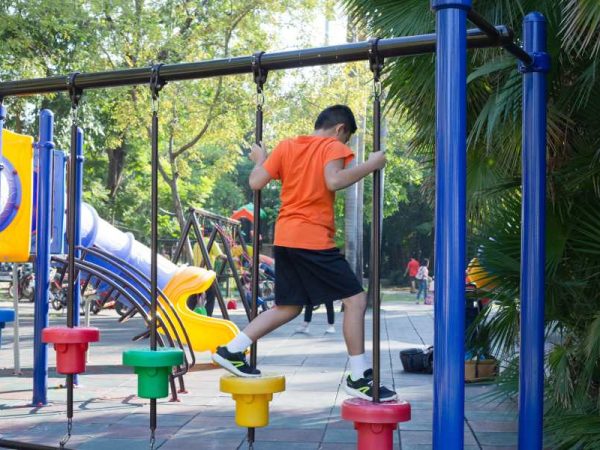
SEZs will offer a variety of recreational zones and activities for expatriate children, ensuring they have access to leisure activities that are culturally familiar and developmentally enriching.
Recreational Features:
- Cultural Learning Clubs: SEZs will establish cultural learning clubs where children from different expatriate communities can come together to learn traditional arts and crafts from their home countries, such as Japanese ikebana, Chinese calligraphy, Vietnamese paper lantern making, and Middle Eastern pottery.
- Sports Academies for Expatriate Children: SEZs will offer specialized sports academies that cater to the sports preferences of expatriate families, including karate and judo for Japanese children, table tennis for Chinese children, and soccer academies for children from America and Europe.
- Language and Cultural Integration Camps: During school holidays, SEZs will host language and cultural integration camps where expatriate children can immerse themselves in Hindi or Marathi while also learning about the history and culture of Maharashtra through fun activities and workshops.
Conclusion: A Family-Friendly Destination for Expatriates
Maharashtra’s SEZs are designed to be inclusive, family-friendly environments that cater to the needs of expatriate families from Japan, China, Vietnam, Malaysia, the Middle East, and America. With world-class educational institutions, cultural integration programs, and recreational spaces, SEZs will ensure that children can thrive both academically and socially while staying connected to their cultural roots.
By focusing on the well-being and development of expatriate children, Maharashtra aims to attract and retain highly skilled workers, making the state a preferred destination for global talent and foreign investment.

Stay Updated with Us
Global Trade Council Partnerships
- Australia China Chamber of Trade, Commerce and Industry
- Australia India Chamber of Trade, Commerce and Industry
- Australia India Seafood Industry Council (AISIC)
- Australia India Free Trade and Seafood Industry Advisory Group (AIFTSIAG)
- Australia Qatar Chamber of Trade, Commerce and Industry
- Australia Saudi Arabia Chamber of Trade, Commerce and Industry
- Australia Turkiye Chamber of Trade, Commerce and Industry
- Australia UAE Chamber of Trade, Commerce and Industry
- Australia USA Chamber of Trade, Commerce and Industry
- Australia Singapore Chamber of Trade, Commerce, and Industry
Make in Maharashtra Economic Forum 2025
- What Sets Make in Maharashtra Economic Forum 2025 Apart
- Maharashtra Economic Forum Agenda
- Why Attend Make in Maharashtra Economic Forum
- How MIM Makes An Impact
- Make in Maharashtra Economic Forum Gala Dinner
- Building a Legacy – MIM a Catalyst For Change
- MIM Economic Forum Event Package
- MIM Economic Forum Partners
Make in Maharashtra Membership
Missions and Delegations
Policies
- Make in Maharashtra Data Centre Policy 2024-2030
- Make in Maharashtra Information Technology Policy 2024-2030
- Make in Maharashtra Multimodal Logistics Policy 2024-2030
- Make in Maharashtra New and Renewable Energy Policy 2024-2030
- Make in Maharashtra BPO and Global Capability Centre (GCC) Policy 2024-2030
- Make in Maharashtra Aerospace and Defence Manufacturing Policy 2024-2030
- Make in Maharashtra Events and Tourism Policy 2024-2030
- Make in Maharashtra Semiconductor Fabless Policy 2024-2030
- Make in Maharashtra Events and Tourism Policy 2024-2030
- Make in Maharashtra Biotechnology Policy 2024-2030
- Make in Maharashtra Apparel and Technical Textiles Policy 2024-2030
- Make in Maharashtra Pharmaceuticals Policy 2024-2030
- Make in Maharashtra DeepTech, AI, and Data Centre Policy 2024-2030
- Make in Maharashtra Electronics Policy 2024-2030
- Make in Maharashtra Fisheries Policy 2024-2030
- Make in Maharashtra MedTech Policy 2024-2030
- Make in Maharashtra Film and Media Policy 2024-2030
- Make in Maharashtra FinTech Policy 2024-2030
- Make in Maharashtra EdTech Policy 2024-2030
Governing Councils
- Semiconductors in Maharashtra Council
- DeepTech in Maharashtra Council
- Artificial Intelligence and Data Centre Council
- New and Renewable Energy Council
- Maharashtra Infrastructure Council
- Fisheries and Aquaculture Council
- Port and Maritime Transport Council
- Robotics and Drones in Maharashtra Council
- HeathTech in Maharashtra Council
- EdTech in Maharashtra Council
- Agriculture and Food Security Council
- FinTech in Maharashtra Council
- MaterialTech in Maharashtra Council
- MedTech in Maharashtra Council
- Governance and Transparency Council
- Maharashtra Cultural and Tourism Council
- Youth Empowerment and Entrepreneurship Council
- Gender Equality and Women’s Empowerment Council
- Maharashtra Climate Change and Resilience Council
- Maharashtra Trade and Investment Council
- Global Capability Centre Council
- Entertainment and Events Council
Advocacy
Resources & News
Contact Us
About Make in Maharashtra
The Make in Maharashtra is a Public Benefit Corporation (PBC) with a mission to establish Maharashtra as a key player in international economic collaboration, focusing on strategic partnerships with nations like USA, Europe, Australia, African Union, KSA, China, India, Qatar, Saudi Arabia, Türkiye, and the UAE across vital sectors such as energy, technology, agriculture, and finance. Our goal is to integrate lessons from successful global economic models, adopting best practices to ensure sustainable and inclusive growth. We aim to enhance economic prosperity and diversification, contribute to societal progress, and promote sustainable economic practices. By leveraging Maharashtra’s unique position, Make in Maharashtra strives to drive substantial economic growth, spur innovation, and solidify Maharashtra’s stature in the international economic arena, resonating with the government’s vision of a technologically advanced and interconnected economy.




